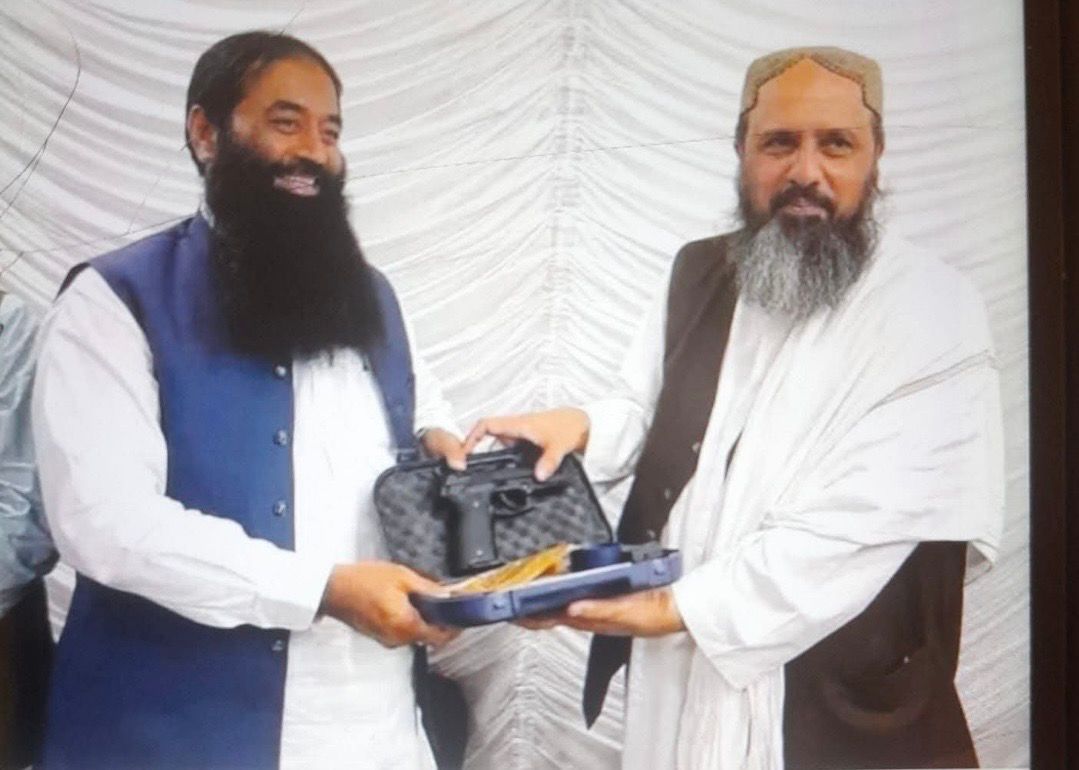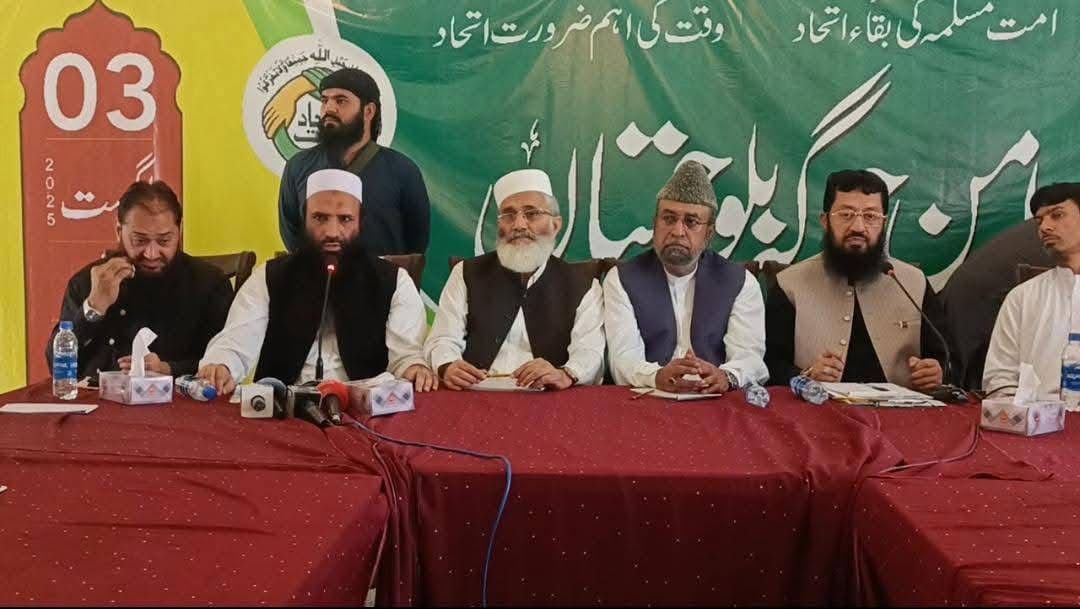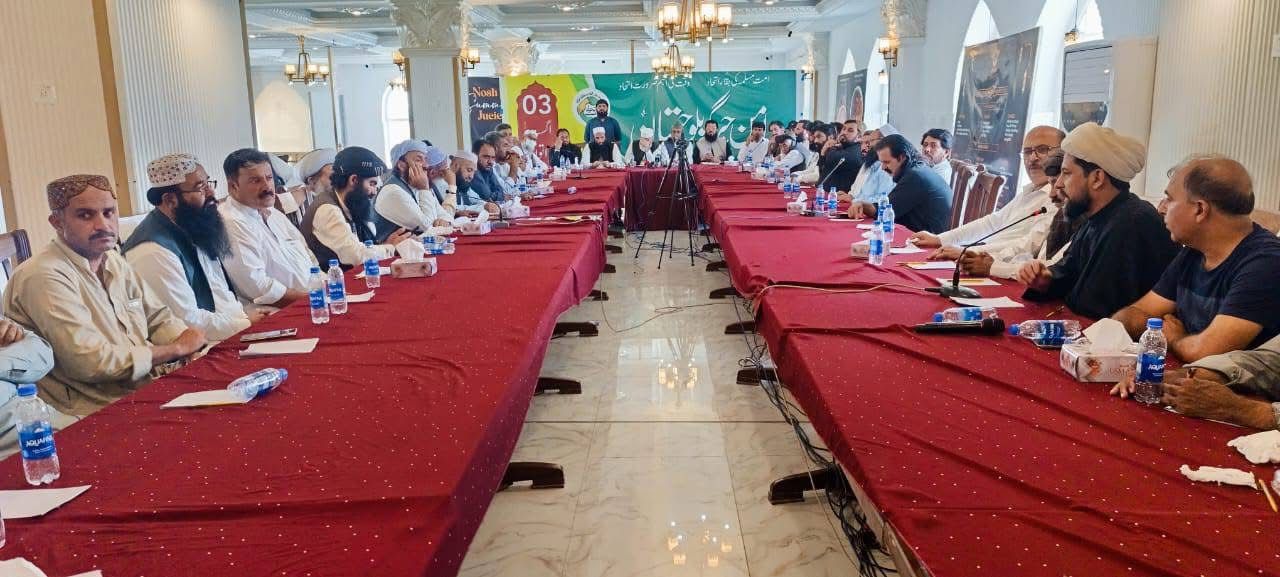A new alliance between Lashkar-e-Taiba and Islamic State Khorasan Province has emerged in Balochistan, Pakistan. Facilitated by Pakistan’s Inter-Services Intelligence (ISI), this collaboration aims to target Baloch separatists and Taliban factions.
In a significant development in Pakistan’s Balochistan province, a covert alliance has been formed between two prominent militant groups: Lashkar-e-Taiba (LeT) and Islamic State Khorasan Province (ISKP). This collaboration, reportedly orchestrated by Pakistan’s Inter-Services Intelligence (ISI), marks a concerning shift in the region’s security dynamics.
Scroll to load tweet…
Pakistan’s longstanding policy of leveraging militant groups to pursue its regional objectives continues unabated, with the Islamic State Khorasan Province (ISKP) emerging as a key instrument of hybrid warfare. Denounced widely as Daesh and deemed un-Islamic by even the Afghan Taliban, ISKP is now reportedly repurposed by the Pakistani military to target Baloch nationalists and Taliban elements that resist Islamabad’s control.
Recent issues of ISKP’s propaganda magazine Yalgaar reveal a disturbing intent to expand operations into Indian Kashmir, indicating coordination and encouragement from Pakistan’s deep state. Adding to this threat, Pakistan is facilitating cooperation between Lashkar-e-Taiba (LeT) and ISKP, using LeT’s extensive logistical networks to strengthen ISKP’s terror capabilities.
The photograph that exposes the alliance
Fresh intelligence has surfaced a photograph showing ISKP’s coordinator in Balochistan, Mir Shafiq Mengal, handing a pistol to Rana Mohammad Ashfaq, a senior LeT commander. Analysts say the image exposes Pakistan’s growing terror nexus under the direct patronage of the ISI. The photograph serves as strong evidence of formal coordination between LeT and ISKP, confirming reports of Islamabad’s continued use of proxies to exert influence in the region.

ISI’s role in facilitating the alliance
The ISI has a long history of supporting various militant groups to advance Pakistan’s strategic interests. Recent reports suggest that the ISI is now facilitating cooperation between LeT and ISKP, providing logistical support and resources to strengthen their operations in Balochistan. This partnership aims to counter Baloch separatist movements and suppress factions within the Taliban that resist Pakistan’s influence.



Key Figures in the Alliance
Mir Shafiq Mengal: Son of former Balochistan caretaker Chief Minister Nasir Mengal, Mengal has been a critical ISI asset for over a decade. He has commanded a private death squad targeting Baloch nationalists and acted as ISKP’s primary facilitator in Balochistan, arranging safe houses, funds, and arms. A 2015 JIT report by Pakistan’s investigative agencies also mentioned his role.
Rana Mohammad Ashfaq: The current Nazim-e-Ala of LeT, Ashfaq oversees the group’s expansion across Pakistan. He has established new training hubs and forged operational links with other militant entities. His coordination with Mengal confirms the formalisation of the LeT–ISKP alliance.
Operational history of ISKP in Balochistan
By 2018, ISKP had established two operational bases in Mastung and Khuzdar districts, backed financially and logistically by the ISI. Mengal served as camp in-charge, providing weapons and funds. His death squad, active since 2010, continued eliminating Baloch rebels on ISI orders. His ties with Pakistan’s political elite are notable; a 2023 photograph showing him alongside former President Asif Ali Zardari highlights his influence.
After the Taliban regained power in Afghanistan, ISI revamped ISKP’s presence in Balochistan. The Mastung camp focused on attacks against Baloch insurgents, while Khuzdar handled cross-border missions into Afghanistan. Arms and funds were channelled through ISI intermediaries to sustain operations.

Recent strikes and LeT’s intervention
In March 2025, Baloch fighters launched a major attack on ISKP’s Mastung facility, killing about 30 militants. In retaliation, ISI instructed Lashkar-e-Taiba to step in. By June 2025, LeT chief Rana Mohammad Ashfaq arrived in Balochistan, followed by deputy Saifullah Kasuri. The group convened a Jigra, calling for jihad against Baloch separatists and pledging to “eliminate anti-Pakistan forces” from the province.
The photograph of Mengal and Ashfaq together confirms active collaboration, signalling an operational alliance targeting both Baloch insurgents and Taliban factions in Afghanistan, executing Islamabad’s strategic agenda through proxy warfare.
Lashkar-e-Taiba’s presence in Balochistan
LeT’s presence in Balochistan is not new. Its Markaz Taqwa in Quetta, led by Afghan war veteran Mian Saqib Hussain, has been operational for years. Between 2002 and 2009, LeT also maintained a training camp where Indian Mujahideen co-founder Yasin Bhatkal reportedly received weapons training in 2006.
With the emerging LeT–ISKP alliance, it is believed LeT may deploy fighters alongside ISKP against Baloch insurgents, mirroring previous collaborations with Al-Qaeda during the Afghan jihad. Analysts warn that merging ideologically distinct extremist groups under ISI supervision represents a dangerous transformation in Pakistan’s terror ecosystem.
LeT-ISKP alliance: A threat to stability and peace
The LeT–ISKP coalition, reportedly backed by Pakistan’s ISI, poses a serious threat to South Asia’s stability. Coordinated attacks on Baloch separatists and Taliban factions could escalate violence in both Balochistan and Afghanistan. The use of state-backed proxy networks highlights Pakistan’s strategy of plausible deniability while pursuing geopolitical and sectarian objectives.
Regional security experts warn that these developments could further destabilise Jammu & Kashmir and undermine international counter-terrorism efforts in South Asia.
The emergence of a formal alliance between Lashkar-e-Taiba and ISKP in Balochistan, facilitated by Pakistan’s ISI, represents a significant escalation in the region’s security landscape. Recent photographs and intelligence confirm Islamabad’s strategic use of proxies to target Baloch separatists and Taliban factions. The international community must remain vigilant, as these developments threaten stability across Pakistan, Afghanistan, and the broader region.
(With inputs from Anish Kumar)
